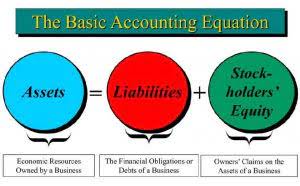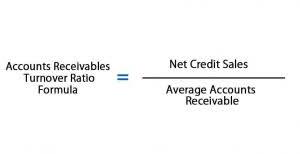5 Best Accounting Books for Small Business Owners

After all, if you don’t know how much you’re making or where that money is going, you’ll have a hard time finding ways to expand your profitability. This is particularly true once the business accounts for its operational costs and recurring expenses. To prepare the system for the next accounting, temporary accounts that are measure periodically, including the income, expense and withdrawal accounts, are closed. The balance sheet accounts also called the permanent accounts, remain open for the next accounting cycle. A trial balance is prepared to test if the total debits equal total credits.
Open a Business Bank Account
- It also has tables in it to demonstrate business accounting tactics and methods so you have an example of how to do it correctly before you dive into your own business financials.
- There are countless options out there for bookkeeping software that blends a good price with solid features and functionality.
- If someone other than you is involved in doing your business accounting, you’ll probably want to double- or triple-check their work so you can be sure it’s all on the straight and narrow.
- Sometimes, people freeze up at the mention of a net income statement or cash flow report.
Authors Howard Schilit, Jeremy Perlet, and Yoni Engelhart, break down everything you should be on the lookout for when reviewing your business’s accounting systems. This book includes case studies and lessons what is business accounting other business owners have learned the hard way so you know what to look out for. Mike Piper’s “Accounting Made Simple” is the best accounting book for small business owners with little-to-no free time.
- Proper record-keeping for small businesses makes the process easier and keeps you compliant with the law.
- It can also include putting together the three key financial statements—the income statement, balance sheet, and cash flow statement.
- As you try to break down financial accounting, you may encounter some complex new terms.
- In this text, accountant Greg Crabtree discusses how accounting practices can seamlessly lead to a business strategy that grows your company.
- These may include net income statements, which show how much revenue the company takes in after expenses, or cash flow statements showing the financial transactions going both in and out of the company.
- The information you get from your receipts should go into some kind of ledger (usually a digital option).
How to Do Accounting for Small Business: Basics of Accounting
This guide teaches you how to track expenses, record revenue, pay taxes, and handle the basic financial requirements of running a small business. Small businesses typically record their business transactions using either single ledger entries or double ledger entries. The single-entry method records business transactions—both deposits into bank accounts and debits out of those accounts—as a single transaction. The equivalent in personal finance is keeping a check register, which is a record of posted checks and cash transactions. In business accounting, the term asset describes a company resource that generates income or value for the business.

Review and pay quarterly payroll taxes
Rising interest rates create multiple challenges for small businesses seeking credit line extensions. To navigate these challenges, small businesses may need to strengthen their financial profiles, build relationships with lenders and explore alternative financing options. If you can’t find accounting software that meets your requirements after all your efforts – consider using another app. Using a locally installed app limits access – making it challenging to share the app with your bookkeeper or accountant.
It allows businesses to efficiently track income, expenses, and other financial data, ultimately providing a clearer picture of their financial health. The book introduces readers to the fundamentals of financial accounting in a straightforward manner. You’ll explore essential concepts, practices, and terminology, acquiring the skills to interpret and utilize financial information effectively for business planning and decision-making. While not explicitly an accounting book, I threw this one in for business owners unsure of the next legal step, as it touches on the legal implications of your business’ tax accounting.

Bookkeeping Options for Small Business Owners
Warren Buffett Accounting Book: Reading Financial Statements for Value Investing by Stig Brodersen and Preston Pysh


